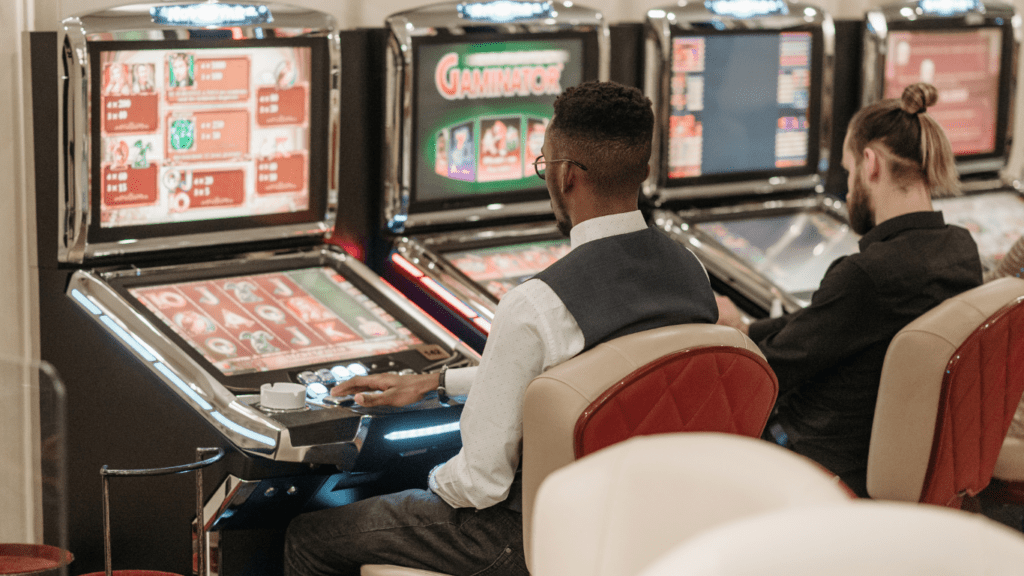Understanding the Concept of ‘Due Wins’
The ‘due wins’ concept in slot machines refers to the belief that a machine is likely to hit a jackpot or payout after a series of losses. This idea stems from a misunderstanding of random number generation and probability. Slot machines use Random Number Generators (RNGs) to determine outcomes, ensuring each spin is independent of previous ones.
Gamblers often rely on patterns and streaks when assessing a machine’s likelihood to pay out. While observing a machine’s losing streak might feel predictive, mathematical probability doesn’t support this notion. A machine doesn’t gain or lose “readiness” to payout based on past spins.
Slot machines are designed to operate with a certain return to player (RTP) percentage, calculated over many spins. Each spin has the same statistical chance of winning as the last, with no built-up likelihood of hitting a payout. By grasping this concept, players can enjoy gaming with realistic expectations, leading to a more responsible and enjoyable experience.
The Science Behind Slot Machine Operations

Slot machines rely on sophisticated technology that ensures fairness and randomness. Understanding these mechanics demystifies the notion of ‘due wins.’
Random Number Generators (RNGs)
RNGs play a crucial role in slot machine operations. They generate numbers continuously, thousands per second, even when the machine isn’t being played. Each spin’s outcome is determined by the number generated at the exact moment the ‘spin’ button is pressed. This process guarantees that each spin is independent and unpredictable, refuting the idea that a machine can be ‘due’ a payout.
Payout Percentages and House Edge
Slot machines are programmed with specific payout percentages, known as the Return to Player (RTP) rate. This figure represents the amount paid back to players over time. For example, a machine may have an RTP of 96%, meaning it pays back $96 for every $100 wagered over many spins. The remaining 4% is the house edge, the casino’s profit margin. Understanding these metrics helps players recognize that slots are designed for long-term profitability for the casino, not immediate player wins.
The Psychology of Gambling and ‘Due Wins’
Gambling psychology plays a crucial role in how players perceive and respond to slot machines. Understanding these mental processes reveals why the ‘due wins’ myth persists.
Cognitive Biases in Gambling
Gambling involves several cognitive biases that impact decision-making. One prominent bias is the Gambler’s Fallacy, leading players to believe that previous outcomes influence future results. For instance, after a series of losses, a gambler might assume a win is imminent, fostering the ‘due wins’ belief. Another bias is the Illusion of Control, where players overestimate their influence on a machine’s outcome, thinking they can predict or control spins. These biases distort the perception of randomness and affect gambling behavior.
How Casinos Capitalize on ‘Due Wins’ Beliefs
- Casinos design slot machines to exploit players’ belief in ‘due wins’.
- By incorporating stimulating visuals and sounds, they enhance the illusion that a jackpot is forthcoming.
- Machines often display near-miss results, where symbols almost align for a win, reinforcing the notion that a win is close.
- Promotional materials frequently highlight big payouts, creating an impression of frequent success.
- .These strategies appeal to gamblers’ biases, encouraging continued play despite losses, ensuring profitable outcomes for the casino.
Real-Life Consequences of Believing in ‘Due Wins’
Believing in the ‘due wins’ myth affects gamblers in various ways, impacting both financial stability and emotional health. This misconception can lead to detrimental behaviors, making it crucial to examine these consequences.
Financial Implications for Gamblers
Misguided by the notion of ‘due wins,’ gamblers often spend more than intended. Frequent losses mount, as the belief in an imminent payout encourages further betting. This cycle leads to:
- debt accumulation
- loss of savings
- strained financial resources
According to a study on gambling habits, individuals who chase losses are more likely to experience financial hardship. This behavior can result in bankruptcy and dependence on loans, further exacerbating monetary stress.
Emotional and Mental Health Effects
Financial stress from gambling amplifies emotional distress, heightening anxiety and depression among players. The constant anticipation of a win, paired with recurring losses, contributes to mood swings and emotional instability. Persistent belief in ‘due wins’ fosters feelings of frustration and helplessness, eroding self-esteem. Research highlights a significant correlation between compulsive gambling and mental health disorders, underscoring the importance of addressing these issues. Cognitive biases and the emotional rollercoaster of gaming create psychological strain that can spill over into personal relationships, leading to isolation and conflict.



 Founder of Key Gamble Lucky, Erniest Adkinseler is dedicated to providing in-depth gambling news, debunking common myths, exploring the dynamics between luck and skill-based games, analyzing the psychology of luck, and offering the latest legal updates in the gambling industry. With a deep passion for unraveling the complexities of gambling, Erniest strives to create a platform that educates and empowers players. Through insightful analysis and expert commentary, Erniest aims to equip readers with the knowledge and confidence they need to make informed decisions and navigate the world of gambling more responsibly.
Founder of Key Gamble Lucky, Erniest Adkinseler is dedicated to providing in-depth gambling news, debunking common myths, exploring the dynamics between luck and skill-based games, analyzing the psychology of luck, and offering the latest legal updates in the gambling industry. With a deep passion for unraveling the complexities of gambling, Erniest strives to create a platform that educates and empowers players. Through insightful analysis and expert commentary, Erniest aims to equip readers with the knowledge and confidence they need to make informed decisions and navigate the world of gambling more responsibly.